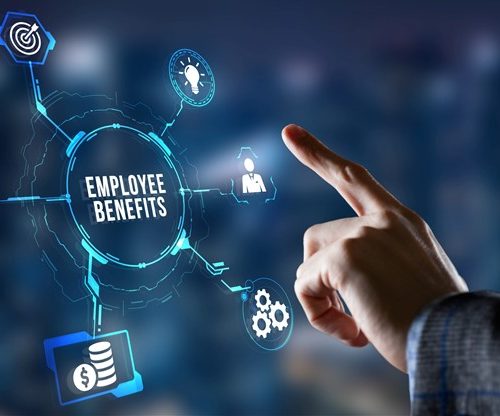

Employees using company fuel for private journeys can sidestep a hefty benefit charge by repaying the full private fuel cost to their employer by 6 July 2025. Miss the deadline, and tax becomes unavoidable.
This repayment process is known as "making good," and requires the employee to repay the employer for private fuel no later than 6 July following the end of the tax year. For the 2024–25 tax year, the repayment must be completed by 6 July 2025.
If the repayment is not made by the deadline, the employee becomes liable for the car fuel benefit charge. This charge is calculated based on the vehicle’s CO2 emissions and the car fuel benefit multiplier. The charge applies regardless of the actual amount of private fuel used, making it potentially costly for employees who only use a small amount of fuel for private journeys, such as commuting.
To avoid the tax, the employee must fully repay the employer for all private fuel used during the year, including fuel used to travel to and from work. Accurate record-keeping is essential, as HMRC will only accept that no benefit has arisen if the full cost is repaid by the deadline. In many cases, repaying the private fuel cost can be more financially beneficial than paying the fuel benefit charge.

Use a company car for personal trips? Avoid a hefty tax charge by reimbursing your employer for private fuel by 6 July 2025. It’s called “making good” – and it could save you a chunk in tax if your private mileage is low.
To avoid the car fuel benefit charge, an employee must "make good" the cost of all fuel used for private journeys no later than 6 July following the end of the relevant tax year. This means that the employee needs to reimburse the employer for any private fuel used during the 2024-25 tax year by this deadline to prevent any tax liabilities related to the fuel benefit.
When an employee is provided with fuel for private use in a company car, the default rule is that the employee is required to pay the car fuel benefit charge. This charge is calculated based on the car's CO2 emissions rating and is applied to the car fuel benefit multiplier. This has just increased to £28,200 for 2025-26 (2024-25: £27,800).
However, the car fuel benefit charge can be avoided if the employee repays the employer for all private fuel, a process known as "making good." Private fuel use includes fuel used for commuting to and from work.
By making good, HMRC will accept that no car fuel benefit charge applies, allowing the employee to avoid the income tax charge on private car fuel. Typically, it is more beneficial for an employee to reimburse the employer for the private fuel rather than pay the Income Tax charge, especially if private mileage is low.
If the employee does not demonstrate that they have repaid all fuel costs associated with private journeys (including commuting), the car fuel benefit charge will still apply. Therefore, it is crucial for employees to maintain accurate records of private mileage and ensure that all fuel costs for private use are fully repaid by the deadline to avoid unnecessary tax charges.

Have you set up a suggestion scheme for ideas that could save or earn you money? Employee suggestion schemes can offer up to £5,000 tax-free for valuable input — and even £25 for smaller efforts. A win for innovation and your employee payslip!
An employee suggestion scheme can offer many advantages for businesses, not only in terms of the valuable insights and innovations employees contribute but also through the potential for significant tax-free rewards. These schemes can help businesses save money, drive new business, and foster a culture of continuous improvement, all the while offering employees incentives for their contributions.
HMRC outlines two types of awards that businesses can offer employees under such schemes:
In addition to these conditions, there are other reasonable criteria that must be met for the payments to be considered tax-free. These criteria are designed to ensure that the awards are made in a structured and transparent manner.

Beneficial loans, where employees benefit from cheap or interest-free loans from their employer, can trigger tax implications. However, certain exemptions, like loans under £10,000 or qualifying loans, eliminate the need for employers to report or pay tax on them.
An employee can receive a benefit when they are provided with a loan from their employer that is either cheap or interest-free. The benefit arises from the difference between the interest the employee pays, if any, and the market rate they would have to pay if they obtained a loan from another source. These types of loans are commonly referred to as beneficial loans.
However, there are several situations in which beneficial loans may be exempt, meaning employers don’t have to report anything to HMRC or pay tax and National Insurance. One of the most common exemptions applies to small loans where the total outstanding balance to the employee is less than £10,000 throughout the entire tax year.
Other exemptions include:
In these cases, no tax or reporting requirements would apply to the employer.

Employers can voluntarily register to report and account for tax on certain benefits and expenses via the RTI system before the start of the tax year. This process, known as payrolling, eliminates the need to submit P11D forms for the selected benefits at the end of the tax year.
The deadline for submitting P11D, P11D(b), and P9D forms for the 2024-25 tax year is 6 July 2025. These forms can be submitted via commercial software or HMRC’s PAYE online service, as HMRC no longer accepts paper submissions. Employees must also receive a copy of the information by the same date.
Employees must also be provided with a copy of the information relating to them on these forms by the same date. P11D forms are used to provide information to HMRC on all Benefits in Kind (BiKs), including those under the Optional Remuneration Arrangements (OpRAs) unless the employer has registered to payroll benefits.
A P11D(b) is still required for Class 1A National Insurance payments regardless of whether the benefits are being reported via P11D or payrolled. The deadline for paying Class 1A NICs is 22 July 2025 (or 19 July if paying by cheque).
If no benefits are provided during the tax year, employers can either submit a 'nil' return or notify HMRC that no return is required. Penalties apply for late submissions or payments, of £100 per 50 employees for each month a P11D(b) is late.